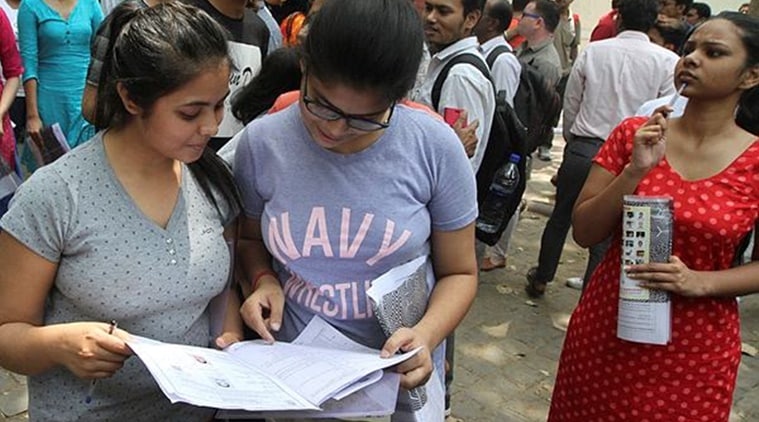 The NEET is at present held in 2,000 centres across 136 cities.
The NEET is at present held in 2,000 centres across 136 cities.
Having fought several legal battles since 2013, the Health Ministry is now trying to get its head around the new biannual NEET, especially the provision of eight different time slots and as many different question papers with different difficulty levels. There are fears that it may once again throw the common medical test into turmoil.
On Tuesday, Union Health Secretary Preeti Sudan met her Higher Education Department counterpart R Subrahmanyam to discuss the issue.
Among other concerns the Health Ministry raised in the meeting is the fully online test, which the ministry fears will load the examination against students from rural and poor background, sources said.
The NEET is at present held in 2,000 centres across 136 cities.
The meeting, held in the backdrop of a Madras High Court order for 196 grace marks to all students who attempted NEET in Tamil, is the first since the HRD Ministry’s announcement that both the National Eligibility-cum-Entrance Test (NEET) for medical admission and the Joint Entrance Examination (JEE) for admission to engineering colleges will be held twice a year.
After the meeting, Sudan said, “We have had some discussions, we have shared our concerns. We are working very closely with the HRD ministry and between the two of us, we will find a way forward.”
As per the new schedule, NEET will be conducted in February and May. There will be eight different slots in each test, and students can choose to appear in any of those slots.
The testing agency — the newly formed National Testing Agency (NTA) — will provide eight different question papers for each slot.
A senior Health Ministry official said: “The thorny issue is, how does one ensure that each paper is of exactly the same difficulty level? If that does not happen, there will be a huge backlash. Moreover, we are also concerned that an online test will put the poor, and students from rural areas, at a disadvantage.”
Eight question papers also mean that the secrecy measured to prevent leaks would have to be adopted 16 different times every year. This, when even the CBSE, among the oldest and biggest education boards in the country, faced the ignominy of paper leaks this year, officials said.
An official present in the meeting said, “We (Health Ministry) will entrust the job of conducting NEET to an external agency — so far it was the CBSE, now it will be the NTA. There are some non-negotiables: different languages in which the exam is held, the syllabus on which it is based, and that it will be objective-type (questions).”
“Beyond that, it is for the agency to figure out how to conduct the examination.”
First mooted in 2013 by the UPA government, NEET got embroiled in 80 court cases that year, including several filed by state governments, which led to the common entrance being put in abeyance.
It was revived in 2016 but there were concerns about language of the examination, which had to be accommodated before all states were on board.